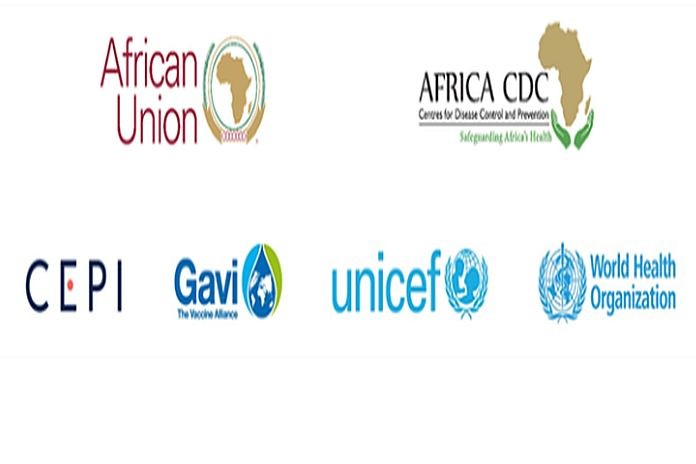ETHIOPIA / SWITZERLAND – Building on lessons learned from our collective experience with dose donations over the past several months, the African Vaccine Acquisition Trust (AVAT), the Africa Centres for Disease Control and Prevention (Africa CDC) and COVAX wish to draw the attention of the international community to the situation of donations of COVID-19 vaccines to Africa, and other COVAX participating economies, particularly those supported by the Gavi COVAX Advance Market Commitment (AMC).
AVAT and COVAX complement each other’s efforts to support African countries to meet their immunization targets, recognizing the global goal of immunizing 70 percent of the African population. Dose donations have been an important source of supply while other sources are stepping up, but the quality of donations needs to improve.
AVAT and COVAX are focused on accelerating access to and rollout of COVID-19 vaccines in Africa. Together we are rapidly expanding supply to the continent, and providing countries with the support to be able to utilize the doses they receive. To date, over 90 million donated doses have been delivered to the continent via COVAX and AVAT and millions more via bilateral arrangements.
However, the majority of the donations to-date have been ad hoc, provided with little notice and short shelf lives. This has made it extremely challenging for countries to plan vaccination campaigns and increase absorptive capacity. To achieve higher coverage rates across the continent, and for donations to be a sustainable source of supply that can complement supply from AVAT and COVAX purchase agreements, this trend must change.
Countries need predictable and reliable supply. Having to plan at short notice and ensure uptake of doses with short shelf lives exponentially magnifies the logistical burden on health systems that are already stretched. Furthermore, ad hoc supply of this kind utilizes capacity – human resources, infrastructure, cold chain – that could be directed towards long-term successful and sustainable rollout. It also dramatically increases the risks of expiry once doses with already short shelf-lives arrive in country, which may have long-term repercussions for vaccine confidence.
Donations to COVAX, AVAT and African countries must be made in a way that allows countries to effectively mobilize domestic resources in support of rollout and enables long-term planning to increase coverage rates. We call on the international community, particularly donors and manufacturers, to commit to this effort by adhering to the following standards, beginning from 1 January 2022:
- Quantity and predictability: Donor countries should endeavour to release donated doses in large volumes and in a predictable manner, to reduce transaction costs. We acknowledge and welcome the progress being made in this area, but note that the frequency of exceptions to this approach places increased burden on countries, AVAT and COVAX.
- Earmarking: These doses should be unearmarked for greatest effectiveness and to support long-term planning. Earmarking makes it far more difficult to allocate supply based on equity, and to account for specific countries’ absorptive capacity. It also increases the risk that short shelf-life donations utilise countries’ cold chain capacity – capacity that is then unavailable when AVAT or COVAX are allocating doses with longer shelf lives under their own purchase agreements.
- Shelf life: As a default, donated doses should have a minimum of 10 weeks shelf life when they arrive in-country, with limited exceptions only where recipient countries indicate willingness and ability to absorb doses with shorter shelf lives.
- Early notice: Recipient countries need to be made aware of the availability of donated doses not less than 4 weeks before their tentative arrival in-country.
- Response times: All stakeholders should seek to provide rapid response on essential information. This includes essential supply information from manufacturers (total volumes available for donation, shelf life, manufacturing site), confirmation of donation offer from donors, and acceptance/refusal of allocations from countries. Last minute information can further complicate processes, increasing transaction costs, reducing available shelf life and increasing risk of expiry.
- Ancillaries: The majority of donations to-date do not include the necessary vaccination supplies such as syringes and diluent, nor do they cover freight costs – meaning these have to be sourced separately – leading to additional costs, complexity and delay. Donated doses should be accompanied with all essential ancillaries to ensure rapid allocation and absorption.
AVAT, Africa CDC and COVAX remain committed to collaborate with donor countries, vaccine manufacturers and partners on ensuring these standards are upheld, as we continue to work together towards achieving Africa’s vaccination goals.





